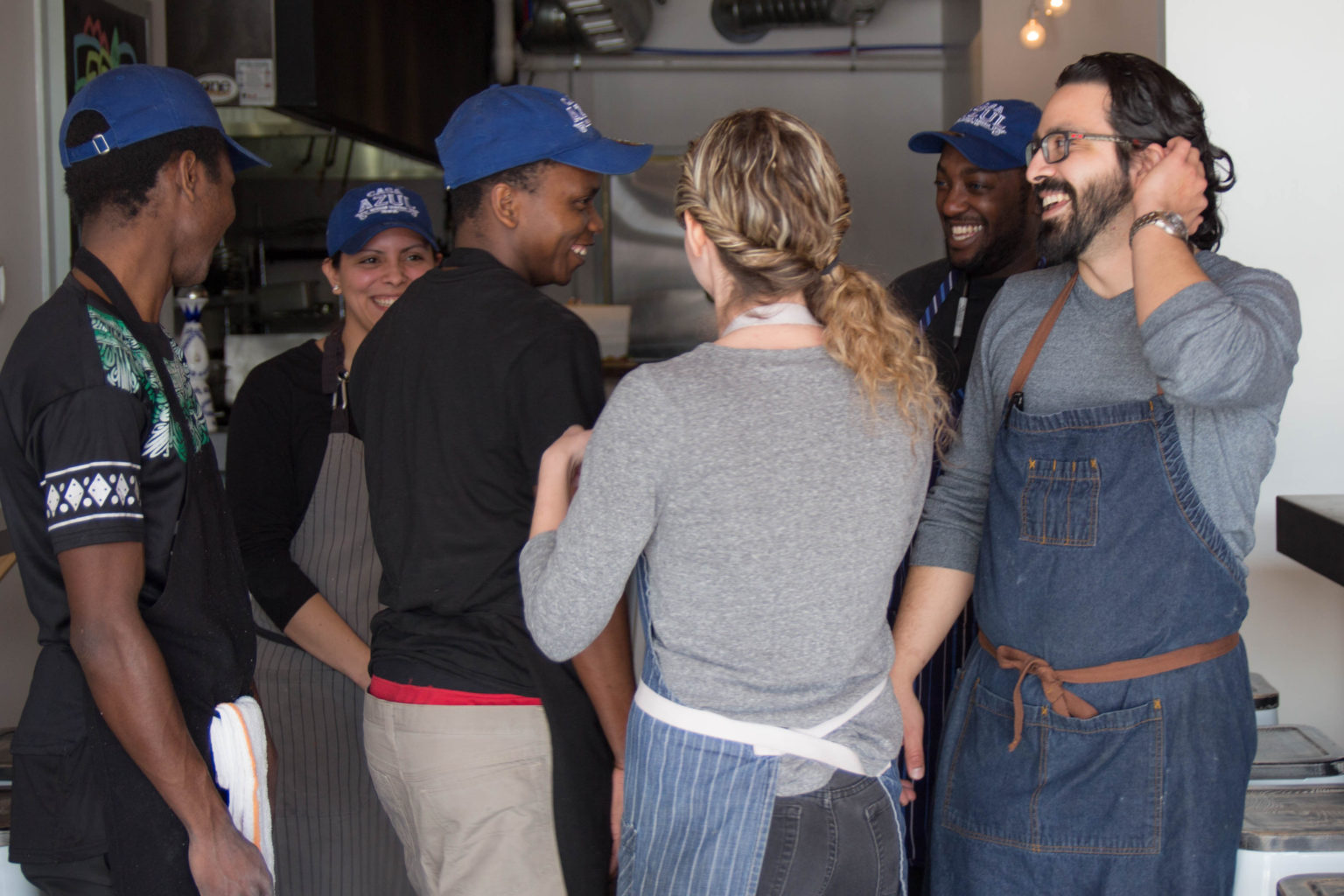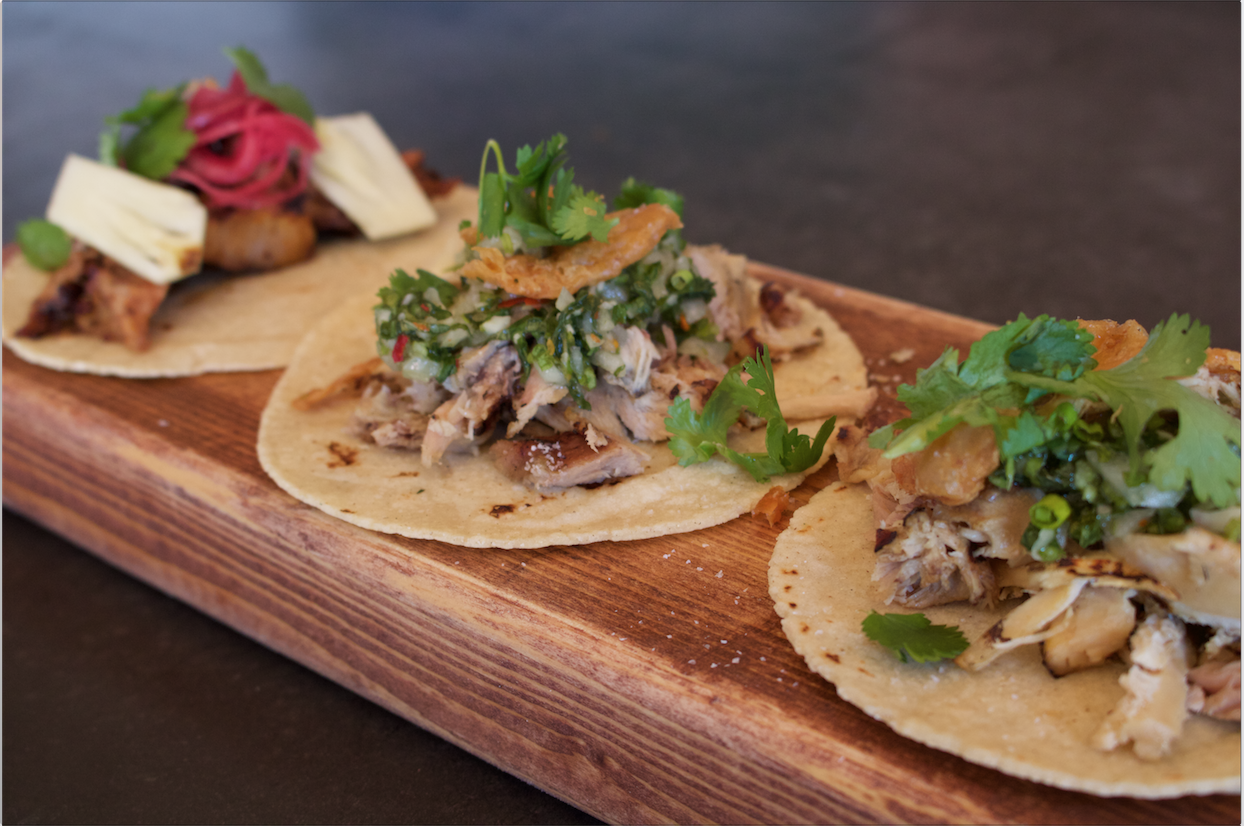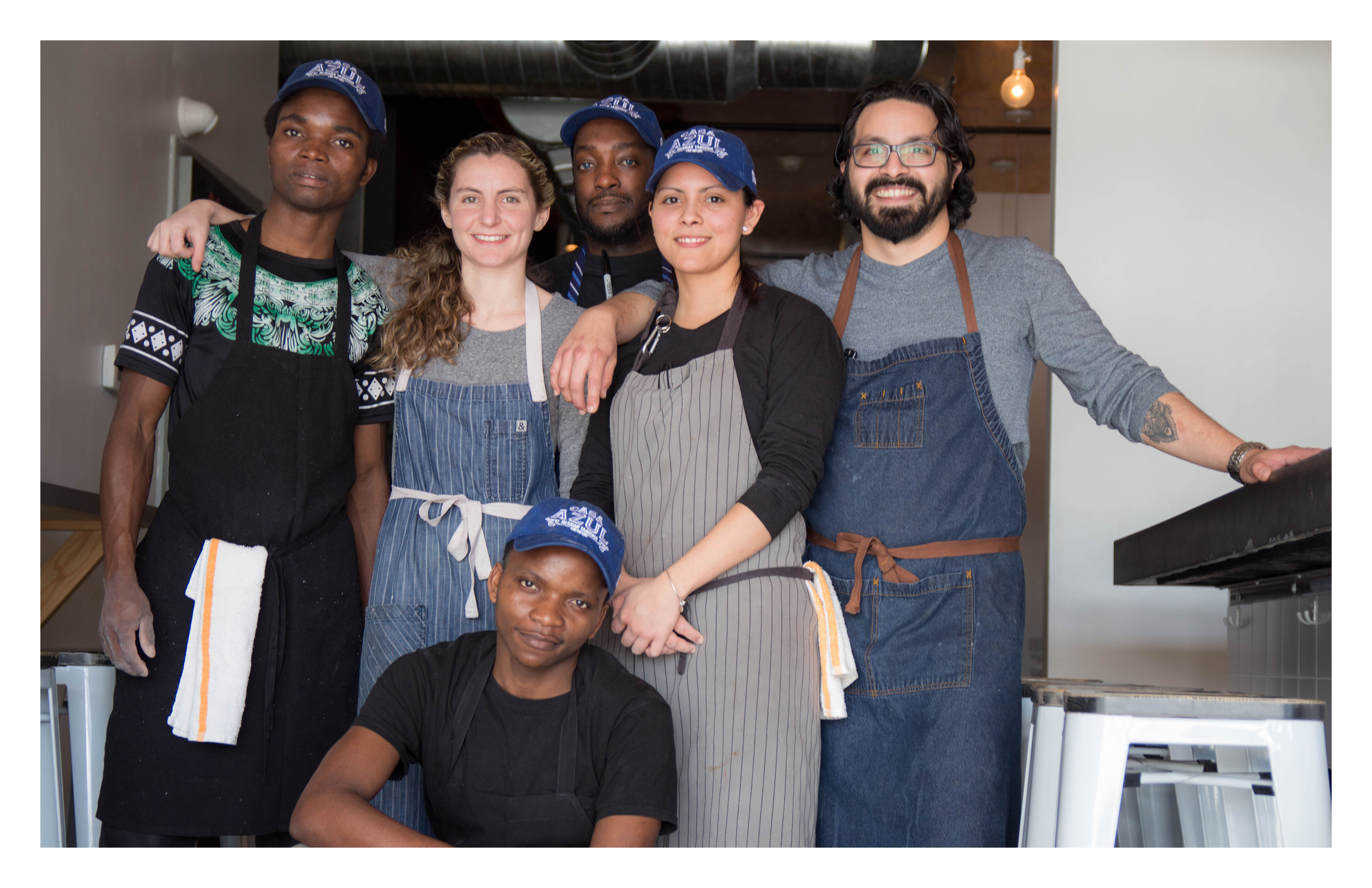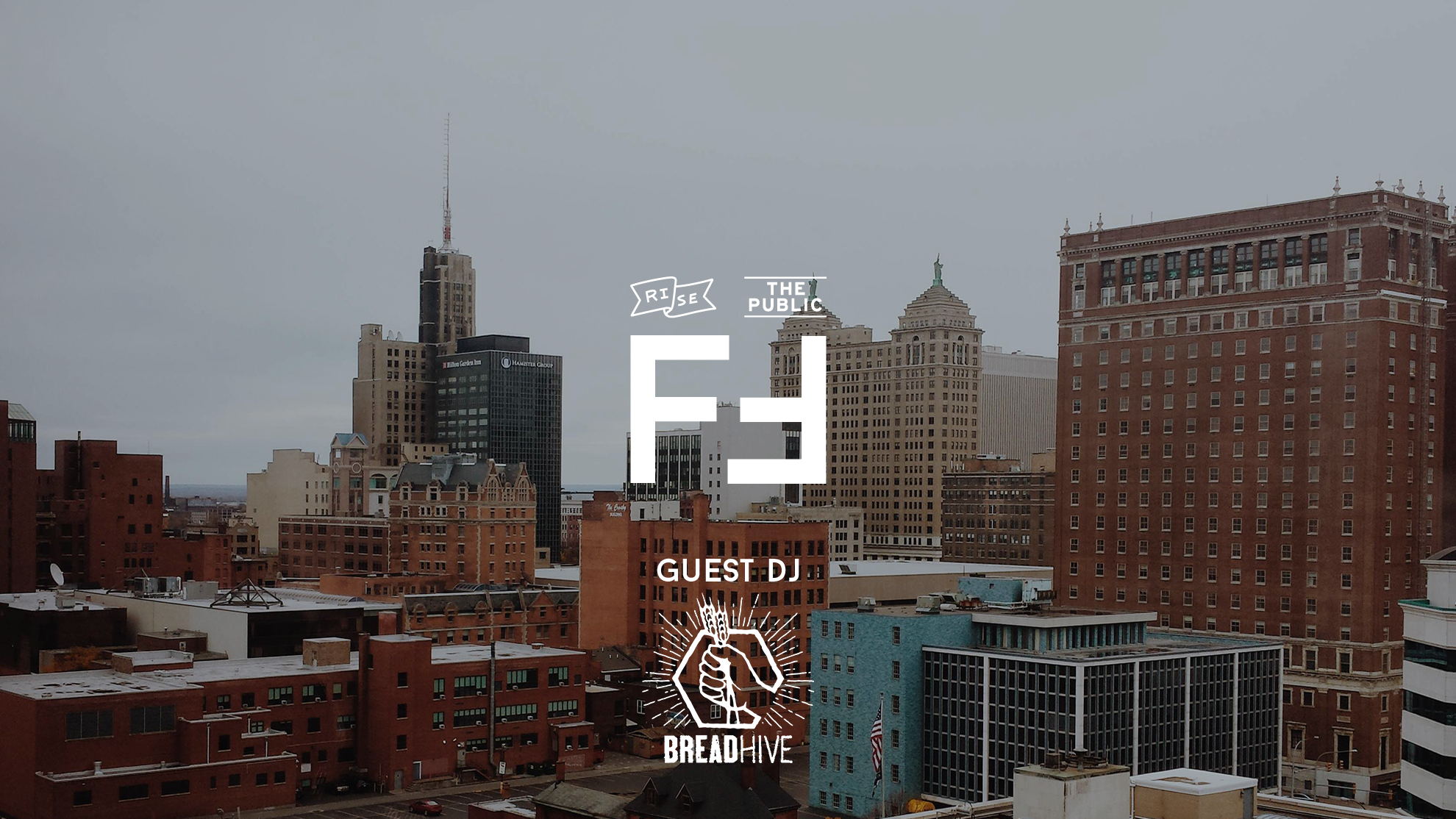By James Colombo III
We’re fortunate to have a growing restaurant community in Buffalo. Amongst the ever changing culinary scene, one spot stands out – Casa Azul in downtown Buffalo.
The Genesee Street restaurant, owned and operated by Zina Lapi and Victor Parra Gonzalez, dishes out elevated street food with a fusion of flavors and complexions that reflect the cultural vividity of the business, its employees, and our city itself.
“I was born in Acapulco,” Victor explains, “but I moved to Montreal on a student visa when I was a teenager.”
Soon after studying culinary arts at the Ecole Hotelier Des Laurentides, Victor earned a position as chef de cuisine at Delta Hotels, a 4-star resort in downtown Montreal. With proper French training, Victor was preparing himself for a prominent culinary career in Quebec.
“But then my mom discovered that she had cancer,” he explained. “That was it for me. I dropped my job and relocated [to Buffalo] for the first time. The doctor’s outlook was not positive, so I stopped cooking altogether and dedicated myself to helping out at the house however I could.”
To pay for his mother’s treatment, Victor was forced to return to Mexico and sell the family restaurant – his childhood home.

“As a 20-year-old I had to go back to sell a 25-year-old restaurant,” he said, “and it was probably the most challenging thing I’ve ever done.”
With the restaurant sold, Victor obtained a student visa to study business at NCCC, earned a kitchen job at Seneca Niagara Casino, and reclaimed his passion for cooking. As his skill set progressed to feature Mexican styles and flavors, Victor opened Jaguar at the Bistro, a Mexican restaurant in Lewiston, New York. Soon thereafter, Victor happened upon another well-known local chef, Zina Lapi, in true Buffalo fashion: out drinking. Victor learned that Zina is the daughter of a Sicilian immigrant, had been classically trained in cooking at Johnson & Wales University, and was heavily involved in the Buffalo food scene (Mike A’s, Buffalo Proper, The Blue Balls Bus).
When the two chefs joined forces and opened Casa Azul, they sought to create the same equal opportunities that were afforded to their parents and to themselves upon entering the U.S. To staff their kitchen, Victor called the International Institute of Buffalo – an organization that welcomes and assists immigrants and refugees to become independent, informed and contributing members of our community.
“Refugees are typically hired to do menial tasks or manual labor, but we knew we could so something different and make it work,” said Victor.
Enter Pilipili Shauri, affectionately known as Shay, a french-speaking, Congolese refugee who, along with his brother Wickocha, make up the bulk of the kitchen staff at Casa Azul. Third brother, Acinda, works with Victor at Las Puertas on Rhode Island Street. From food prep and cooking to interacting with customers – the brothers are learning the foundations of restaurant operations.
As Shay sits down to chat with Victor and me, he is gentle, curious, and kind. His thin, sharp features contrast with soft, round eyes that seem to hold the secrets of a thousand untold stories. He speaks with a childlike shyness that is immediately contradicted by the heavy thoughtfulness of each response.Victor translates my questions to French, and Shay sits silently, remembering the moments of his life that led him to Buffalo – a journey that ended just six months ago.

I was born in the Congo,” he said. “We starved for weeks at a time. My parents became ill with infection and died. This was very dangerous for us because we were unprotected. We became targets.”
Fortunately, when Shay was four years old, he and his siblings were saved. They were taken in by a host family in Tanzania, which borders the Democratic Republic of the Congo in East Africa. During their 20-year survival in Tanzania, Shay and his family took part in a long and drawn out screening process to determine whether they could be admitted into the United States.
“They asked us many questions about who we were, where we came from, what happened to our parents explained Shay. “And then, one day, we got ‘The Golden Ticket.’ It was the most exciting moment of my life, but also the scariest.” When Shay and his siblings finally arrived to Buffalo, they entered a resettlement program through the International Institute of Buffalo. According to the program, all participating refugees “have received security clearance by the Department of Homeland Security, are medically screened by healthcare professionals, and are authorized to work in the United States.” Such were the circumstances for Shay, his sister, Shabi, and his brothers.
Shay and his family were settled on Buffalo’s West Side, a neighborhood traditionally known for its ethnically diverse makeup. “It is nice to live by people who are like me, who are in a similar situation,” Shay said. With bicycles gifted to them from Victor and his team, Shay and his siblings ride their bikes to work every day, no matter what. Even in winter.
“They are the hardest workers I have ever been around,” said Victor.
And how are they assimilating to life in The Queen City? “Shabi is doing her best to learn English, and to help her brothers learn as well,” Victor translates for Shay. “And if my boss gives me more days off, maybe I could go and learn better English!” jokes Shay, smiling broadly amid our laughter. Victor, Zina, and Shay aren’t just incredible chefs, good people, or friendly neighbors – they are proud representatives of Buffalo’s immigrant and refugee population. They are living examples of how to make it in America. They are an eclectic series of success stories that have come together to create one unique experience for all of us who visit the restaurant.

Want more from No Boundaries? Check out our podcast!
Episode 1 lives here, on iTunes and Stitcher. Please listen, subscribe, review, and enjoy.




